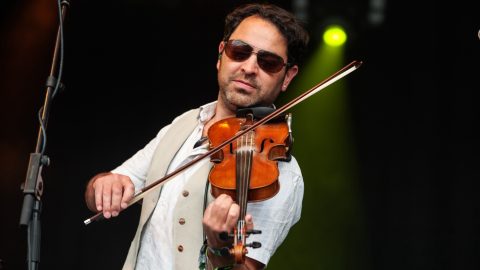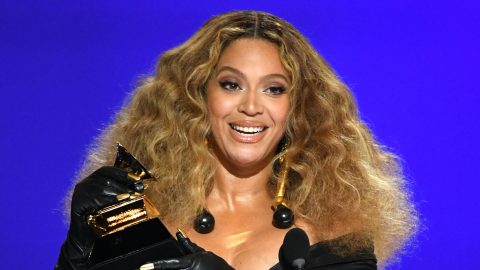
For a scene that makes such a noisy arrival wherever they go, it’s shocking to see the UK’s dance clubs and festivals continuously fall through the cracks in terms of funding to support them throughout the ongoing coronavirus pandemic. In June, the Music Venue Trust and over 500 music venues asked the government to provide £50million in emergency funding to “hibernate” the spaces until October.
This was followed by the #LetUsDance campaign, which demanded an explanation as to how our county’s dance music industry was expected to survive. Backed by DJs including Fatboy Slim, Pete Tong, Four Tet and Daniel Avery, the group said that “nightclubs and festivals are the beating heart of the UK dance scene”, and to ignore them would be perilous.
Last week, the UK’s night-time economy was thrown a lifeline when the Government announced £2.25 million of “fast-acting emergency support” from its £1.57 billion culture rescue package would go towards “grassroots music venues most at risk in these challenging times”. This includes nightclubs with a “significant live music programme focusing on grassroots talent and original material” alongside “DJ- and MC-based events” who can apply for grants of between £1,000 and £80,000 until September. “We recognise the significance of clubs, grassroots venues and festivals to the music industry and their cultural value to the UK which is why we have acted to save them,” a Government spokesman told NME.
However, many within the industry argued the guidelines were not clear enough. Others noted the figure equates to just 0.143 per cent of the allocated fund. It seemed the dance music industry was still being largely ignored. That was the case until last Thursday (July 30), when Arts Council England announced a £500 million Culture Recovery Fund for events and venues linked to “electronic music (including house, electronica, drum & bass, dubstep, experimental).”
While this financial backing is positive news for the UK dance music industry, it’s long overdue and the damage caused by enforced closures may well have already been done. Despite the country’s clubs being “a key part of our economy at night and a social hub for so many communities,” London’s Night Czar Amy Lamé believes the government has “failed to give an indication of when they can open their doors again”. Similarly, the government’s almost non-existent advice surrounding festivals has been confusing, to say the least.
Although live streams, virtual festivals and an increasing number of socially-distanced events are helping to provide a temporary next-best-thing alternative, the endless cancellations and postponements have had an detrimental effect on those working in the industry. For DJs, club promoters, festival bookers and record labels, it’s been the toughest year they have ever faced – keeping that party spirit going has been an insurmountable challenge.
The DJs
Sam Divine: “People need their release through music. It’s as important as religion”
Ibiza regular and radio show host Sam Divine says the Covid-19 pandemic has had a “huge impact” on her mental health. Having been used to playing out every weekend for the past 20 years, the house DJ has suffered anxiety and panic attacks “that I had never experienced before as a result of not being able to go out and do my thing”. To help get her through lockdown, she says meditation, self-care days and, weekly live streams “have kept my head above water”.
But she’s not sure how long it can last. “I can’t live like this forever. Music is my life.” Divine is also concerned for the wider scene as a whole, which she fears could “completely collapse. Many artists, promoters, hospitality, club and festival owners may lose years of hard graft, their livelihoods and suffer deep mental depression if we don’t get some help soon. This will have a huge ripple effect across the whole world. People need their release through music,” she says. “It’s as important as religion.”
Dan Shake: “The energy was great – everyone was just happy to be out”
It’s not quite been the summer Dan Shake had planned either. Having had 40 shows cancelled or postponed (so far), the deep-digging selector’s last few months have instead been spent making new music. However in recent weeks, he’s had the chance to play his first DJ set since lockdown, at one of Percolate and Brixton Courtyard’s socially-distanced ‘socials’. “The energy was great – everyone was just so happy to be out despite not being able to stand, dance or leave their tables,” he says of the 6.30pm-11pm event’s pub vibe. “It’s all quite strange, not being allowed to dance with people.”
While these limited-capacity events and live streams offer a temporary fix, Shake is concerned that “clubs are being forced to close, or having to run crowdfunding campaigns just to cover their weekly running costs”. But it’s not just venues and festivals that need support, he says. “There are endless freelance musicians, promoters, agents, sound engineers, bar staff who all rely on regular gigs and it is those guys who keep the scene running, and without them there would be no scene.”

Horse Meat Disco: “I find it hard to imagine that there will never be dancefloors”
James Hillard of London queer party Horse Meat Disco is cautiously optimistic about the future of clubbing in the Covid-era. “I find it hard to imagine that there will never be dancefloors or that people will stop making music,” he says, adding that “a vaccine may be a while away but, in the meantime, if good treatments for the symptoms can be developed quicker then this will be a fairly short blip.”
He echoes the concern that, “if the economic situation for clubs and venues doesn’t improve, then there could very well be less spaces available and that would be a huge loss.” Whether or not that depressing possibility becomes reality remains to be seen but, either way, Hillard is sure that “if there are no more clubs, people will find other ways of enjoying music and dancing”.
The Festivals
Defected: ‘The need for positivity became more important than ever’
Having cancelled all their 2020 events – including a Printworks takeover and their own London FSTVL – the Defected team took a different approach by launching their own virtual festival series. “The need for positivity became even more important than ever,” says managing director Wez Saunders. Following the success of the first edition – streamed from an empty Ministry Of Sound in London – the series ran for nine weeks and reached 18 million people worldwide. It’s worth noting that DJ performances are far easier to put on in comparison to bands, simply because there are almost-always fewer members and instruments. There’s a cultural difference, too. Livestreamed DJ sets are the norm in the scene, with the Boiler Room series one of the most popular brands in music.
The idea behind the virtual festivals was to “offer our community the opportunity to engage with our brand and each other from the comfort of their own homes,” Saunders says. Moving Defected online for now makes sense because opening with socially-distant measures is “not financially viable”. Some level of assistance is “absolutely necessary for many to survive”, says Saunders, adding that the government and businesses within the dance music industry “need to stand together, collectively share information to support and help one another and raise awareness of legislative changes to limit the disruption and long-term impact”.
Strawberries & Creem: “A road map to normality is not enough – we are running on empty”
Instead of bringing Mike Skinner, Tiffany Calver, Raye, Koffee and Pa Salieu to a remote Cambridgeshire polo farm in mid-June, the small independent team behind Strawberries & Creem found themselves reassessing their business model to, as co-founder Chris Jammer says, “ensure we are never put in such a vulnerable position again”. Cancelling the 2020 festival was “a major blow,” and it left them relying on the Government’s furlough scheme to make ends meet.
As for the immediate future, he urges that “a road map to how we get back to normal is not enough – at this stage, we are running on empty. Much of the industry is already signalling that they will not be able to recover from this.” While he suggests an extension of the furlough scheme would go some way in helping the industry, Jammer is worried that UK festivals are already in a “very precarious position. Bouncing back requires energy “but, as an independent festival, currently we are at rock bottom”. Then there’s the fact that holding festivals in the age of COVID-19 poses many logistical problems; how do you juggle the joyous liberation of festivals with ensuring that people feel safe? There are no simple answers.
The Clubs
Sub Club: “The government needs to give wider recognition to how venues contribute to the cultural life of our cities”
Initially anticipating that they might shut for two to three months, it quickly became apparent to Mike Grieve, owner of Glasgow’s Sub Club – an iconic nightspot that opened in 1987 and has a storied history – that “this was going to be a much longer interruption to normal life than we realised, and that nightclubs generally – and our club in particular – would be among the most difficult environments to reopen”.
Maintaining safe distancing in a one-room low-ceilinged 410-capacity basement sweatbox poses problems, he admits, adding that “apart from the physical issues, the experience is all about up-close interaction, with the DJ booth and the soundsystem right on the dancefloor and people packed into that area”. Grieve and his team then decided that to give the club its best chance of surviving the crisis, a crowdfunder was the only option. It has since raised £188,715 from 4,321 donations – an indicator of just how important this space is to the city’s party scene.
Beyond financial support, he says the government needs to give “much wider recognition to how venues contribute to the cultural life of our cities. A good start would be to convert the government-backed loans into grants,” he says. “If we have to rely on borrowed money to survive this crisis, it’s only a matter of time before swathes of clubs and music venues shut permanently”.
But while he thinks the UK dance scene will take a “considerably harder knock than other countries”, he remains positive. “I have great faith in the emerging talent and the spirit of our youth culture. Our scene has always demonstrated incredible resilience and is populated by predominantly optimistic people who do what they do for the love of it, not for the rewards, so I’d like to think that DIY ethic and ‘can do’ attitude will continue to prevail”.
he.she.they: “Public mental health will suffer without the ability to connect to others on the dancefloor”
With their international club schedule on pause (resulting in a reduction of hours for staff members), house and techno rave promoters he.she.they. have been using their platform to engage people with politics and human rights as well as hosting equality-promoting live streams. “We’ve been able to use this opportunity to further amplify the voices of causes we believe in,” say co-founders Sophia Kearney and Steven Braines. “For example Black Lives Matter, Black Trans Lives Matter as well as standing together with the Jewish community and the Polish LGBTQIA+ community.”
They’re also launching a label, with upcoming releases from Louisahhh and a Wax Wings record featuring Nimmo that “look to embody the core ethos of our events: platforming gender, sexuality and racial equality”. Equally important is “connection to a part of yourself that needs expressing.” If the scene is neglected now, they are concerned that “when we are able to safely return, the amount of venues, festivals and creative people that are out of action because they were forgotten during difficult times will have a knock-on effect. It will not only be culturally and economically damaging, but the mental health of the public will suffer without the ability to connect to others on the dancefloor”.

The Labels
Ministry of Sound Recordings: “We thrive on human interaction”
Ministry Of Sound president Dipesh Parmar says the lack of physicality, of not being able to share that euphoric ‘moment’ on the dancefloor, is having more of an impact than people realise on music. “We thrive on human interaction whether that’s being in the office, meeting new artists, working in the studio with a producer, or being crammed next to a stranger in a nightclub.” Beyond that, the music that the label signs is primarily built with the dancefloor in mind. “Whether that’s experiencing it yourself firsthand or skipping through an Instagram clip of a DJ playing a track to a crowd – that feeling is more powerful than any other medium.”
“Unfortunately, the tunes that have dropped aren’t having the same effect on streaming numbers or radio plays, and that’s due to the environment that people are consuming music right now,” they say. However Parmar does point out one slight positive: his inbox is flooded with new music. “The quality of music when we can return to the dancefloor is going to be like we’ve never heard before,” he teases. “The appetite for electronic music hasn’t changed, people still want to hear something that makes them feel good!”
Local Action Records: “Live opportunities being taken away affect the whole industry – not just artist’s tour diaries”
From an independent label’s perspective, Local Action founder Tom Lea believes it’s “important to keep things moving as best we can”. He recognises “the whole industry has lost a seismic battle when it comes to shows”, and having had numerous conversations with artists who considered pushing their releases back, Lea thinks it’s “crucial that we keep winning the battles that we can win”. That means continuing to release music and grow artists’ fanbases through recordings “while putting money back into our artists’ pockets where we can, too.”
Having spoken to other label owners and A&Rs “who seem to think labels haven’t been affected,” Lea considers that naive. “Our bottom line hasn’t been immediately affected, but our artists have lost one of their most important avenues when it comes to building a fanbase, especially early on in their careers”.
“Great records don’t just happen in a vacuum, and these live opportunities being taken away affect the whole industry, not just artist’s tour diaries”. When clubs start to open again, he says there’s a “great responsibility on everyone involved – promoters, managers, venues and headline-level artists” – to make sure the reopening of the live industry is done “with fairness and consideration to artists of all sizes; rather than just packing headliners into small venues (the only venues that will realistically be open for some time) and muscling out the rest.”
The post The beat goes on: how the UK dance scene’s DJs, clubs and festivals are fighting for survival appeared first on NME Music News, Reviews, Videos, Galleries, Tickets and Blogs | NME.COM.









